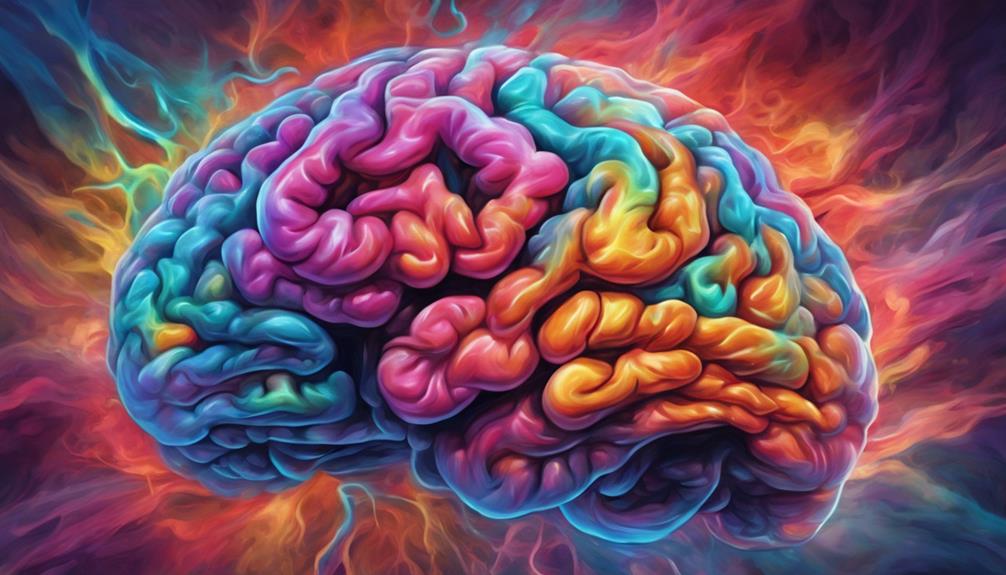The enigma of human consciousness continues to intrigue researchers, with the question of how the brain creates this subjective experience remaining a pivotal mystery in neuroscience and philosophy. As scientific insights delve into the complex web of neural processes underlying consciousness emergence, a critical examination of brain mechanisms, philosophical perspectives, and neuroscientific theories offers a multifaceted view. From neural correlates to altered states of consciousness, the exploration of cognitive processes and sensorimotor control unveils a deeper understanding. However, the intricate nature of consciousness creation demands a closer examination of interdisciplinary collaboration and innovative methodologies to unravel its complexities.
Key Takeaways
- Consciousness arises from dynamic neural interactions and integrated brain activity.
- Specific patterns and levels of brain activity correspond to different states of consciousness.
- Cognitive functions, perception, memory, and emotions contribute to consciousness generation.
- Neural correlates of consciousness elucidate brain regions and activity dynamics.
The Enigma of Human Consciousness
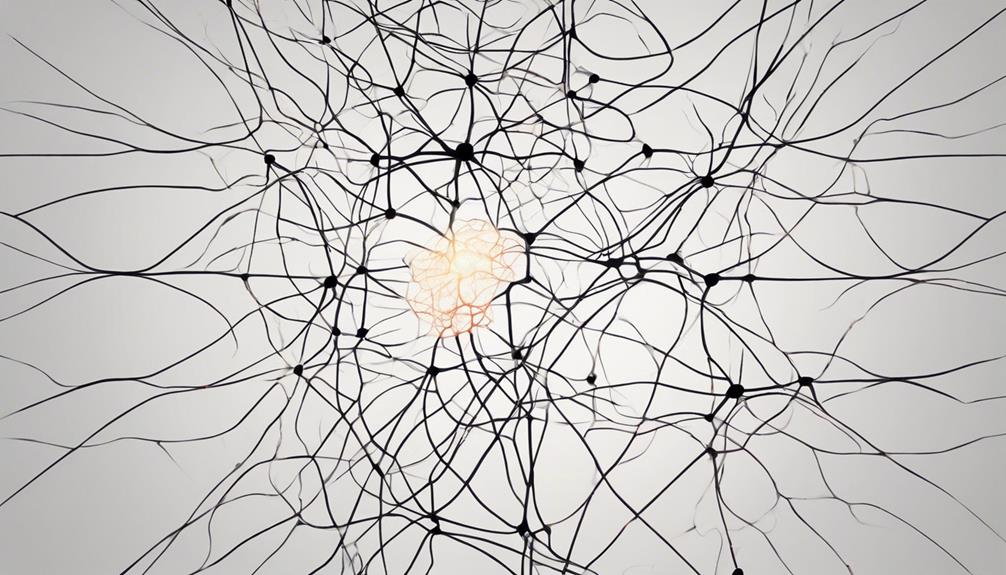
The enigma of human consciousness poses a profound challenge to scientific inquiry, demanding an exploration of how subjective awareness and self-perception emerge from the complex neural processes within the brain. Human consciousness, characterized by conscious experiences and self-awareness, is intricately tied to the integrated brain activity that involves neural mechanisms such as neural oscillations, synaptic connections, and information processing. Unlike other brain functions that can be localized to specific regions, consciousness arises from dynamic interactions across various brain regions rather than being confined to a single area.
The enigma lies in deciphering how these neural mechanisms give rise to subjective experiences and self-awareness. Cognitive functions, perception, memory, and emotions all contribute to the generation of consciousness within the brain. To unravel this enigma, researchers delve into the intricate workings of the brain, aiming to understand how the orchestration of neural activities culminates in the rich tapestry of human consciousness.
Scientific Insights on Consciousness Emergence
Emerging scientific insights shed light on the intricate processes through which the brain orchestrates the phenomenon of consciousness, revealing the complex interplay of neural networks and electrochemical signaling underlying subjective awareness and self-perception. Neural activity plays a fundamental role in generating consciousness, with specific patterns and levels of brain activity corresponding to different states of consciousness. The study of neural correlates of consciousness has elucidated the brain regions and activity dynamics associated with conscious experiences, offering valuable insights into the mechanisms at play.
Exploring states of consciousness such as wakefulness, sleep, and altered states provides a window into the diverse manifestations of brain-generated consciousness. Investigations into brain damage and the effects of anesthesia on consciousness have further deepened our understanding of how disruptions in neural functioning can impact conscious awareness. By analyzing brain activity through advanced technologies and computational models, researchers aim to unravel the complexities of consciousness emergence, paving the way for a more comprehensive comprehension of this intricate phenomenon.
Exploring Brain Mechanisms of Consciousness
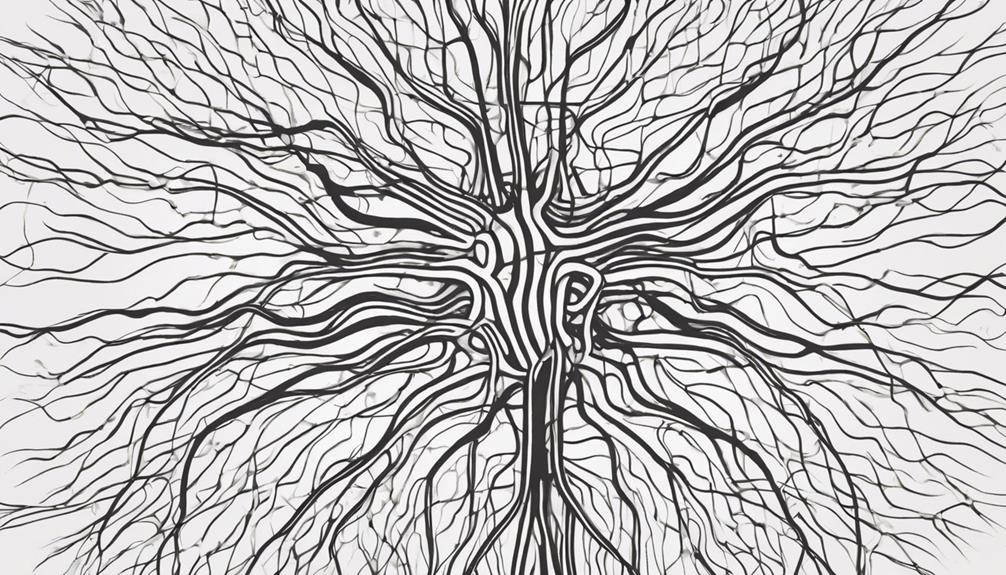
Exploring the intricate neural processes underlying consciousness reveals a complex interplay of electrochemical interactions among billions of neurons in the brain. Consciousness, a multifaceted phenomenon, is intricately tied to the activity of these neurons and the networks they form. Through various neural processes, such as synaptic transmission and neural oscillations, the brain's physiological and functional states can be altered, leading to changes in consciousness. Neuroscience research is dedicated to unraveling the mystery of how the brain creates consciousness, employing advanced technologies and methodologies to delve into the depths of brain mechanisms associated with conscious awareness.
Understanding these brain mechanisms is not only essential for gaining insights into the nature of consciousness but also for shedding light on consciousness-related conditions. Disorders like coma, vegetative states, and certain sleep disorders highlight the critical role of intact brain function in sustaining consciousness. By studying how these conditions disrupt normal brain activity, researchers aim to decipher the neural underpinnings of consciousness and potentially develop effective interventions for related impairments.
Philosophical Perspectives on Consciousness
Philosophical discourse surrounding consciousness delves into the fundamental nature of the mind-brain relationship, encompassing a spectrum of views from dualistic perspectives to materialistic interpretations. The theory of consciousness is a central subject of debate within philosophy, with the 'hard problem of consciousness' posited by philosopher David Chalmers highlighting the challenge of explaining how subjective experiences arise from neural processes. Over centuries, philosophical beliefs on the immaterial nature of consciousness have influenced the direction of inquiry into human cognition. Today, these historical perspectives continue to shape modern theories of consciousness and impact scientific investigations into the mind-brain relationship. Dualism, which suggests a clear delineation between the mental and physical realms, contrasts with materialism, which seeks to explain consciousness solely through physical processes. By examining these philosophical stances, researchers aim to deepen our understanding of consciousness and the complexities inherent in its study.
Neuroscientific Theories on Consciousness
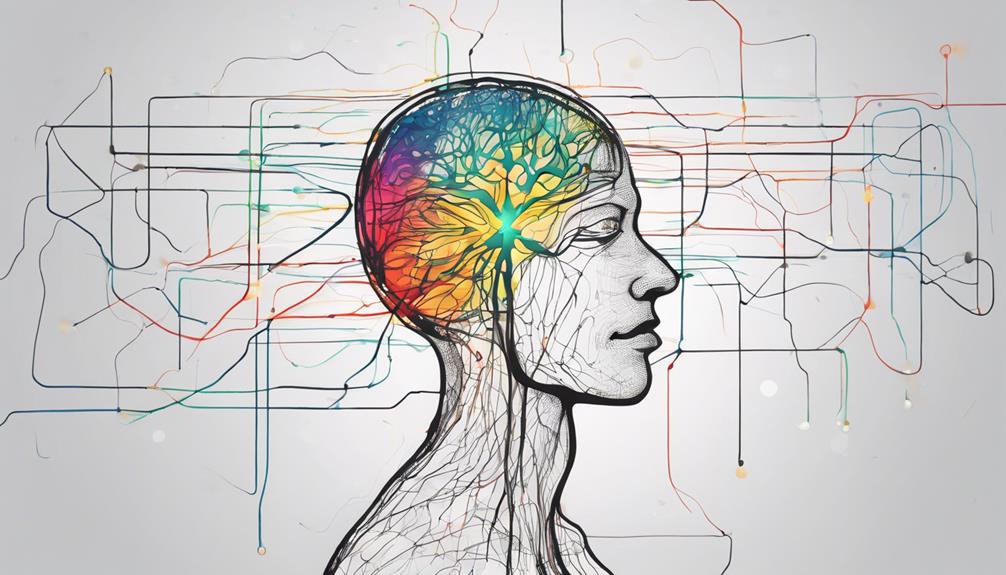
The understanding of consciousness has been extensively explored through various neuroscientific theories that aim to elucidate the mechanisms underlying the emergence of subjective awareness. These theories provide valuable insights into the neural basis of consciousness:
- The Global Neuronal Workspace Theory (GNWT) suggests that consciousness arises from widespread neural activity in the brain, enabling information to be globally accessible.
- The Integrated Information Theory (IIT) proposes that consciousness emerges from the integration of information across neural networks, highlighting the importance of interconnected brain regions.
- The Attention Schema Theory (AST) posits that consciousness is a product of the brain's ability to create a model of attention, emphasizing the role of attention in shaping conscious experiences.
- Research on 40-Hz neural oscillations by Rodolfo Llinás underscores the significance of synchronized brain activity in generating consciousness.
- Investigations into altered states of consciousness offer valuable insights into how changes in brain function impact the subjective experience of consciousness, shedding light on the dynamic nature of conscious states.
Consciousness and Cognitive Processes
Consciousness intertwines with cognitive processes, reflecting the brain's intricate orchestration of sensory inputs, memories, and emotions to form a unified subjective experience. Cognitive processes such as attention, perception, memory, and decision-making are fundamental components contributing to conscious awareness. The brain's neural networks and information processing systems operate in harmony to generate conscious thoughts and experiences. Interactions within specific brain regions, including the prefrontal cortex, parietal cortex, and thalamus, are crucial for supporting conscious cognitive functions. Consciousness arises from complex electrochemical interactions and network dynamics within the brain, underscoring the complexity of cognitive processes.
The integration of electrical activity across neural networks within different brain regions is essential for coordinating cognitive functions and sustaining consciousness. The brain's ability to process information and regulate electrochemical interactions underpins the generation of conscious experiences. Understanding the intricate interplay between neural network dynamics, cognitive processes, and brain regions is key to unraveling the mechanisms through which consciousness emerges.
Debates on the Nature of Consciousness
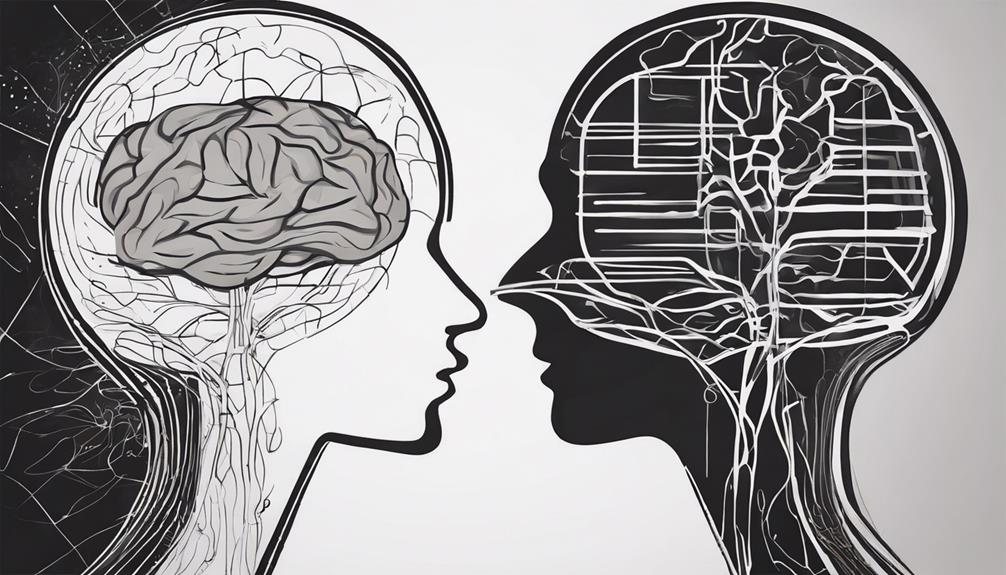
Amidst ongoing debates surrounding the essence of conscious awareness, scholars and researchers are rigorously examining the nuanced fabric of subjective experience. The mystery of consciousness continues to challenge the scientific community, delving into the complexities of human consciousness and its relationship with brain tissue. The science of consciousness grapples with the explanatory gap between physical processes in the brain and the rich tapestry of conscious experiences. Various theories of consciousness have emerged, each offering a unique perspective on this intricate phenomenon.
- Philosophers and scientists debate whether consciousness is a fundamental aspect of reality or an illusion created by the brain.
- The hard problem of consciousness refers to the challenge of explaining how subjective experiences arise from neural processes.
- Some propose naturalistic dualism, suggesting a non-reductive element of reality for consciousness, while illusionists argue that consciousness is a cognitive illusion.
- The relativistic theory of consciousness views consciousness as observer-dependent and challenges traditional dualist and illusionist positions.
- Consciousness is considered a system that may or may not exhibit phenomenal consciousness, with different cognitive frames of reference impacting its understanding.
Frequently Asked Questions
What Makes the Brain Conscious?
Neural activity in the brain underpins conscious awareness by facilitating cognitive processes, self-awareness, and subjective experiences. Brain functions involved in information processing and perception mechanisms contribute to the integration of sensory inputs, leading to conscious awareness. The synchronization and coordination of neural networks enable the brain to generate a coherent and unified perception of the external world, ultimately manifesting as conscious experiences.
How Does Consciousness Develop?
Consciousness development is a multifaceted process shaped by brain development, cognitive processes, neural connections, environmental factors, childhood experiences, genetic influences, social interactions, and psychological theories. It evolves through a complex interplay of these elements, leading to the gradual emergence of self-awareness and subjective experience. This intricate journey underscores the importance of various factors in shaping the development of consciousness throughout an individual's life span.
Is There Evidence the Brain Creates Consciousness?
Neural activity, cognitive processes, and brain functions play integral roles in creating consciousness. Electrochemical signals within neural networks provide the foundation for conscious experiences. Neuroscientific evidence supports the idea that specific brain mechanisms underlie consciousness. While quantum theories and philosophical debates offer alternative perspectives, the consensus remains that the brain's intricate functions are fundamental to the creation of consciousness.
Where Does Conscience Come From?
Conscience, a profound aspect of human consciousness, stems from a complex interplay of philosophical debate, evolutionary origins, neural pathways, quantum mechanics, cognitive processes, self-awareness, neurological basis, and mystical experiences. It is believed to evolve from a need for social cohesion and ethical decision-making. The development of conscience highlights the intricate nature of human morality and the deep-rooted connection between our brains and our sense of right and wrong.
Conclusion
In conclusion, despite centuries of research and exploration, the enigma of how the brain creates consciousness remains a profound mystery. Scientific insights, philosophical perspectives, and neuroscientific theories offer valuable insights, but the true nature of consciousness continues to elude us. The complexity of this phenomenon serves as a constant reminder of the limitations of human understanding and the vast depths of the human mind that are yet to be uncovered.
